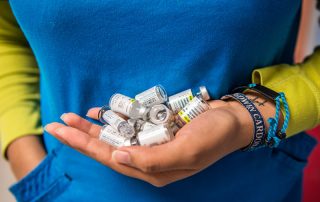HPV Vaccine Could Protect More People With Fewer Doses, Doctors Insist
Source: www.npr.org Date: March 29, 2017 Author: Michelle Andrews You'd think that a vaccine that protects people against more than a half dozen types of cancer would have patients lining up to get it. But the human papillomavirus (HPV) vaccine, which can prevent roughly 90 percent of all cervical cancers as well as other cancers and sexually transmitted infections caused by the virus, has faced an uphill climb since its introduction more than a decade ago. Now, with a dosing schedule that requires fewer shots of a more effective vaccine, a leading oncology group has joined other clinicians and public health advocates who are pushing hard to prevent these virus-related cancers. Last year, the Centers for Disease Control and Prevention's Advisory Committee on Immunization Practices recommended reducing the number of HPV vaccine shots from three to two for girls and boys between the ages of 9 and 14. This month, the American Society of Clinical Oncologists also urged physicians in the U.S. and abroad to use the vaccine to help provide protection against cervical cancer. The CDC recommendation was based, in part, on clinical trial data that showed two doses were just as effective as a three-dose regimen for this age group. (Young people older than 14 still require three shots.) The clinical trial was conducted using Gardasil 9, a version of the vaccine approved by the Food and Drug Administration in late 2014. It protects against nine types of HPV, seven that are responsible for 90 percent of cervical [...]

